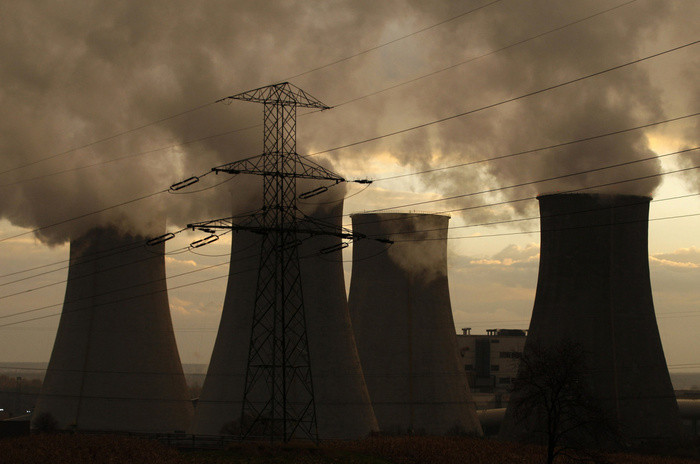China takes advantage of Russia-US disagreement, wins big in Europe
(Baonghean.vn)- Beijing is gaining an energy advantage in the region, with a level comparable to the advantage Moscow enjoyed during the Cold War.
A geopolitical shift is taking place in Europe that should make us very fearful. While no one is paying attention, China has been dramatically expanding its economic and military capabilities in Eastern Europe.
 |
| Beijing is gaining an energy advantage in Europe. Photo: AP. |
China, which is widely seen as having done little to curb North Korea's nuclear and missile ambitions, has acquired a significant stake in Greece's Piraeus port project. It is also trying to acquire assets in the Czech Republic, Hungary and Poland, including contracts to build nuclear power plants.
Meanwhile, in Bulgaria, former US Secretary of State Hillary Clinton's previous efforts to force Bulgaria to breach its contract with Russian state-owned uranium enrichment company Rosatom have not yielded the expected results, creating conditions for China to replace Russia in the project to build the new Belene nuclear power plant.
Rosatom successfully sued Bulgaria for breach of contract. Bulgaria had to pay a $660 million penalty, a large sum for a small country. To compensate for the damage, the Bulgarian government was forced to privatize the project. According to media reports, China was the leading bidder. If the Chinese bid was successful, the country’s state-owned nuclear companies would use Russian-made equipment, or else take full control of the new nuclear facility.
Unlike Russia, whose nuclear development programs have traditionally relied on a relatively soft program that uses intergovernmental loans to finance construction and leaves management to local governments, China has consolidated control over both funding and operations, thus giving it complete control of the critical infrastructure—in this case, a major nuclear facility in a former Soviet state.
A similar situation occurred in Poland, where China stole the contracts to build a nuclear plant that was supposed to be built by the United States. The US nuclear industry was in tatters, with Westinghouse declaring bankruptcy and GE unable to raise capital even for advanced boiling water reactors in more developed countries. China, by contrast, was flush with cash—much of it from trade with the United States.
What is happening here is that China is exploiting the geopolitical disagreement between Russia and the United States to gain ownership and control of key parts of the energy infrastructure. This strategy also gives China an “energy belt” extending from the Baltic to the Black Sea. As such, it effectively controls key parts of the infrastructure in Bulgaria, the Czech Republic, Poland, Romania, and Slovakia.
Fearing China's expansion, the White House has been forced to fill vacant positions in the State Department with European and Asian experts.
The US approach needs to be more specific, for example moving away from a blanket containment policy towards a strategy that allows Russian projects, as long as they do not harm European energy security or US security.
For example, we must do everything we can to resist Lithuania’s call to halt construction of a nuclear plant being built by Russia in Belarus. The Russian reactor is using state-of-the-art technology. The design has been approved by independent regulators in more than a dozen countries, including Finland, a country known for its highest safety standards. Lithuania’s safety concerns are acceptable compared to China’s ambitions to expand its control of infrastructure.
Competition in the construction and management of nuclear power plants is a classic example of a geopolitical chessboard where victory is not achieved by one move, but by two or three. Players must consider many aspects of economics, geopolitics and military strategy, and in this case, multiple opponents./.
Lan Ha
(According to National Interest)
| RELATED NEWS |
|---|
